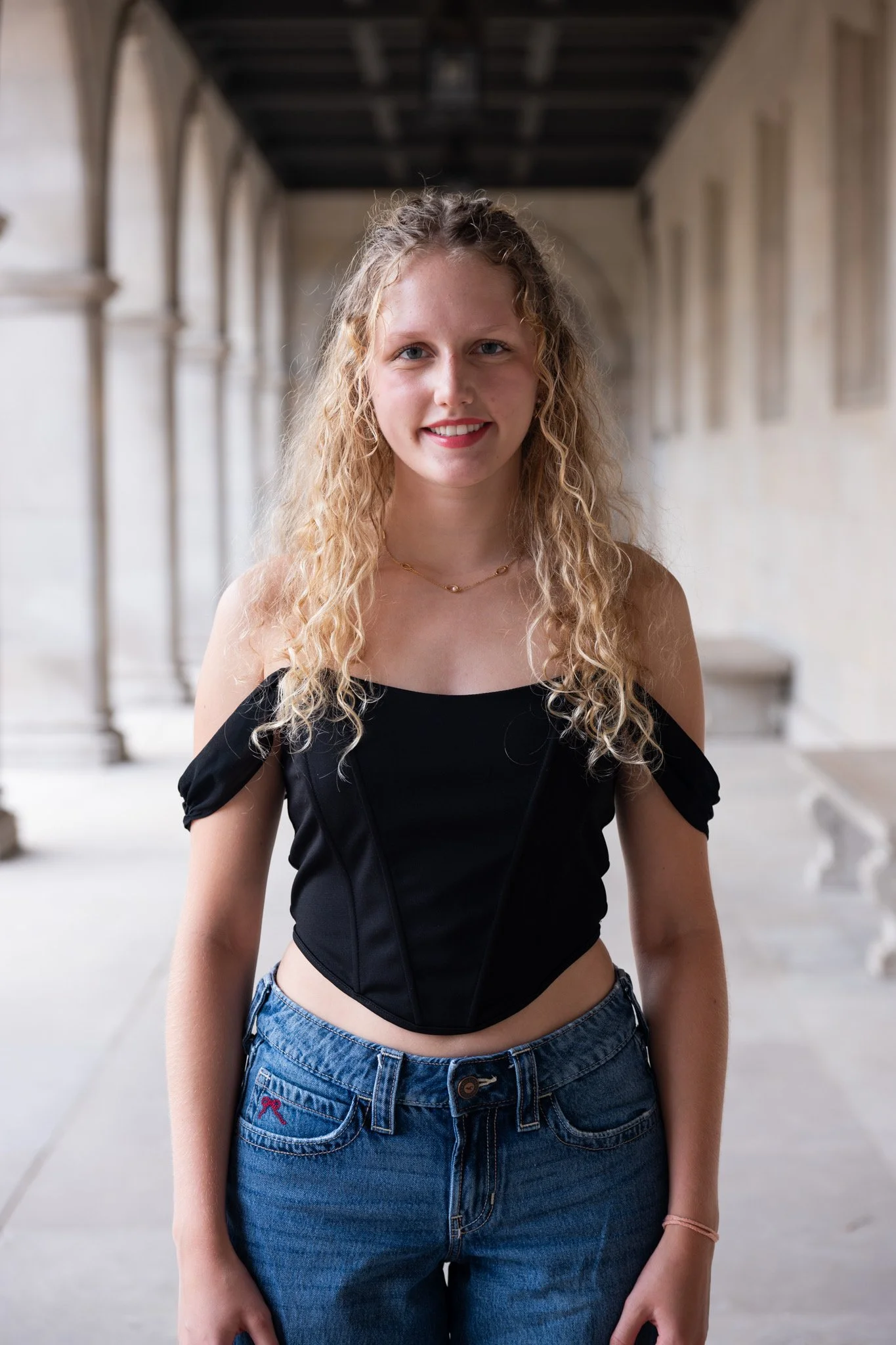Noelle L.
If you’re reading this, know that you are not a burden.
I didn’t start therapy until I was a sophomore in high school. Now, that doesn’t sound too abnormal—unless you’re in my family, where both my older sister and younger brother had been in therapy since they were in elementary school. My sister struggles with intense anxiety, while my brother has ADHD and is working to control his emotional volatility.
I, on the other hand, was “fine.”
Growing up, I would tag along on car rides to drop my siblings off at therapy appointments, never truly understanding what they were doing there. All I knew was that it stressed my mom out, and it seemed to be a relief that I wasn’t another kid getting out of the car. I began to take silent pride in my lack of “issues,” taking advantage of responsibilities to prove my independence and competence to my parents. If my parents left on a weekend trip, it was I who held down the fort, making sure everyone ate well, finished homework, and went to sleep at a reasonable hour. If my mom needed someone to vent to, it was I who always provided the listening ear. When I got my driver’s license, it was I who took the wheel when transporting family members to school and practice—even though my sister had had her license for over two years by then.
And I don’t mean to say I resent my siblings, or that I believe them incapable of success. It is truly quite the opposite. My sister is the most kind, creative, and talented person I know; my brother is both intelligent and an outstanding athlete who works extremely hard.
However, there was always a thought that would creep into my head whenever our family confronted a mental-health-related conflict: this is a burden. These struggles that my siblings have, they are burdens to my parents. They frustrate them, pull them down, stress them out. And while I know they love their kids endlessly, I wondered: how would they react if I happened to add more weight on their shoulders?
I resolved that the best way that I could help my parents was to avoid becoming another burden. I hid my anxiety and self-doubt in sports and leveraged my toxic perfectionism to excel in school. Overall, I was fine. Or at least, fine enough. Then COVID-19 hit.
I was heading into freshman year of high school with no connections and no hope. My core group of friends was all attending a neighboring high school, leaving me with no friends to start at a new school. As summer sped into fall, I began to slip out of my friends’ minds. I was no longer invited to group hangouts or parties, no longer included in birthday celebrations. By winter of freshman year, I had been completely cut off. With COVID restricting me from going to school and forming new relationships, I was alone. That was when I hit rock bottom.
I went into the worst depression I have experienced, constantly dissociating from my life and filling my thoughts with daydreams of a far-off, happy future. I struggled between wanting to live to see that future and not wanting to live at all. Too scared to show signs of my pain, I would shut myself in my room and cry on my floor, playing music to drown out the sobbing. This lasted for 8 months, until I felt so much despair and hopelessness in my life that I was afraid I would try to end it. I knew I had to do something.
I had to finally admit that I was not, at all, “fine.”
In July of 2021, I gathered the courage to approach my mother and say the words that I had dreaded my whole life: “I need therapy.” As I broke down in tears in the kitchen, I explained to her everything that I had been going through. I was terrified to see judgment, exasperation, or even resentment in her eyes. But all I saw was concern.
Immediately, she embraced me and my idea to start therapy. We found a local practice where I started weekly sessions. My therapist helped me to understand not only the depression I had suffered through recently but also how traits such as my perfectionism and underlying anxiety had influenced my entire life. Opening up to her helped me in countless ways, but what was truly liberating was opening up to my family.
I was no longer worried that my pain would be a burden. I realized that when you have people in your corner who truly care about you, it is impossible to be a burden. If you don’t feel like you have a strong support system or people who care about you… you need to know that someone cares. Trust me. And if you can’t find them right now, then come to me. I am here for you.
I want you to know that it is okay to open up. It is okay to ask for help. It is okay to share the weight of your pain. Because when you let it out, you realize it truly has no weight at all. If you’re reading this, you are not a burden.
Noelle L., Washington University in St. Louis
Connect With Us
To follow IfYoureReadingThis at WashU on Instagram, get in touch with our chapter, and learn about more resources available to WashU students, visit our chapter’s homepage.
AUTHOR CONTACT
This author has opted to allow readers who resonate with their story to contact them. If you would like to speak to the author of this letter about their experience, please use the form below.

